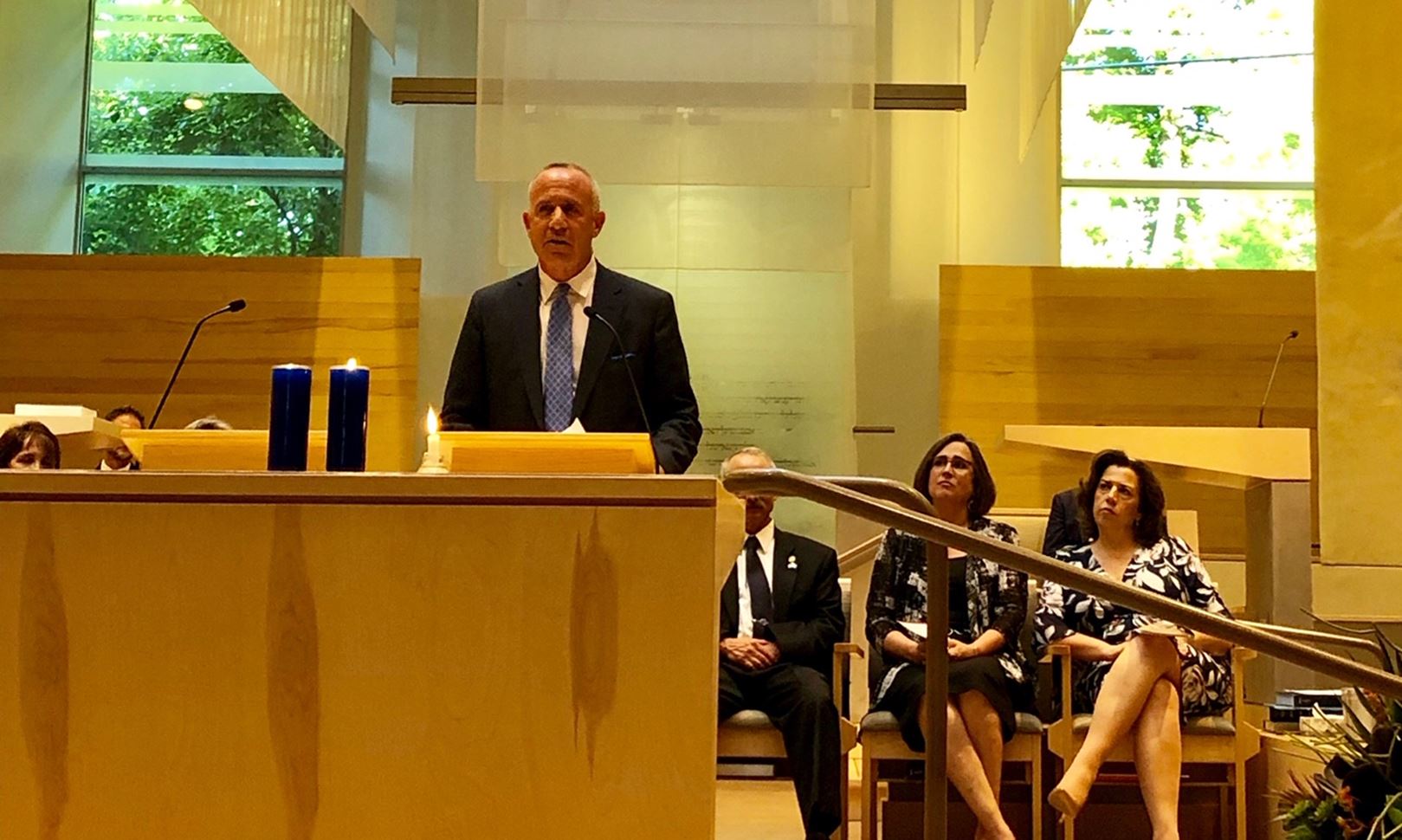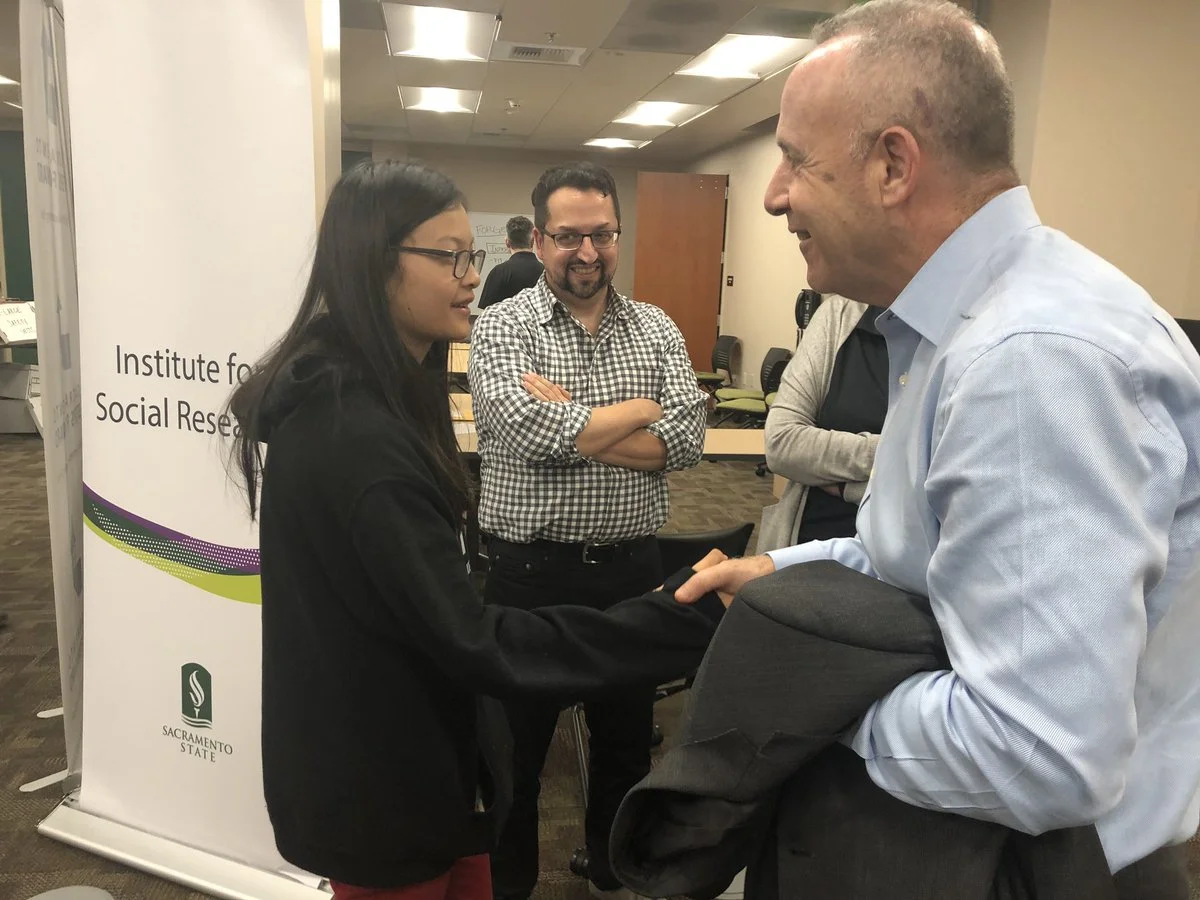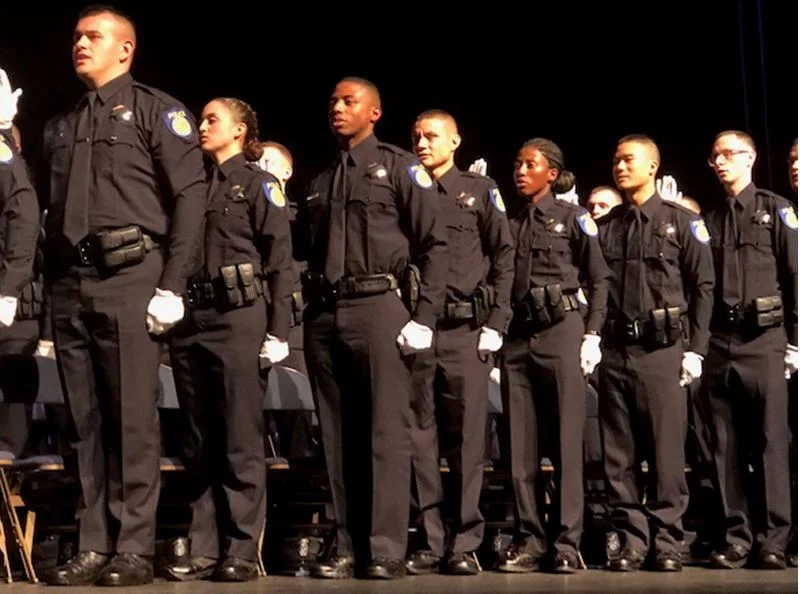'History need not be written for us.' Mayor Steinberg reflects on the anniversary of Sacramento synagogue firebombings
Mayor Darrell Steinberg delivers remarks on the 20th anniversary of the firebombing of Jewish synagogues in Sacramento.
Exactly 20 years ago a few hours from now, the unspeakable shattered the peace of an early Sacramento summer night. Twenty years ago tomorrow morning, we awoke to both the horror and a choice.
The murders of a loving gay couple Winfield Mowder and Gary Matson, together with the burnings of our synagogues and Planned Parenthood, did more than end the lives of two wonderful people and create massive physical damage to our places of worship and centers of community.
The unforgettable events of June 1999 also carried the possibility of a very engaged and public capital city choosing a different path.
I remember the fear; I remember the anger; I remember the understandable talk about security and laying low.
I also remember a different kind of fire than the literal fire which burned most of this sacred place of worship.
Four thousand people showed up to the Convention Center that week to demonstrate where we stood. As many or more families displayed United We Stand signs in their home windows. In those early days, both actions represented a conscious choice to express the exact opposite of laying low.
In 2013, the community coined the phrase Sacramento Proud. We actually earned that title 14 years earlier, in the days and weeks after June 18, 1999.
Our anger was real, and our channeled focus was much more dominant than our fear. Our insistence on making a permanent commitment to addressing hate and intolerance was even stronger than our revulsion. Our love for each other and our instinctive and reflexive moves then and since to never allow the victims of hate to stand alone has been the hallmark of Sacramento’s community relations ever since.
We are all Jews, our non Jewish community told us 20 years ago and many times since. We are all LGBT, we said then and many times since. We are all Muslims, we’ve shouted whenever Abraham’s children have suffered the indignities of suspicion and outright hate. The same for our Sikh friends, our hard working immigrant families and our African American communities.
We have said and acted consistently in the 20 years since June 18, 1999 that what you do to one of us, you do to all of us. It is our Sacramento ethic. It is a great source of comfort. I am confident that it will never change.
Yet it is fair to ask whether our progress over 20 years has advanced as far as our intentions. The answer is of course ambiguous and arguable. No one is naive enough to believe that some great epiphany has eliminated the sicknesses that still pervade our culture and our country. The oldest sickness, antisemitism, is on the rise again.
Epiphanies don’t generally fix what’s wrong. Change happens when ordinary, committed people work hard and organize year after year decade after decade and eventually bend rigid laws, customs and results that discriminate and divide.
All is not right, but it is important to ask tonight: what rights or advances do we take for granted that we did not have 20 years ago?
The same summer Winfield and Gary died because they loved each other, my first Legislature narrowly passed what in retrospect is hard to believe was a highly-controversial bill granting domestic partners the right to visit their dying and sick loved ones in the hospital. The debate was vitriolic and the bill passed with few votes to spare.
Twenty years later, we fought for and won constitutional marriage equality. That was a far-off fantasy two decades ago
Five years earlier, this state passed the harshest anti-immigrant initiative in the nation, Proposition 187. Last week, the Legislature easily passed the biggest health care expansion for dreamers and hard-working undocumented immigrants in the nation.
Three years before the firebombings, Rodney King was beaten mercilessly and said simply, ‘Can’t we all just get along’. This month, law enforcement and the ACLU came together for the first time and agreed to change a century old use-of-force policy that had made too many people of color fearing for their lives.
Prejudice and discrimination can in fact be diminished over the course of 20-plus years.
The story unfortunately does not end there.
Xenophobia and prejudice is rampant in America, Europe, China and other parts of our world. Violent antisemitism has revisited American synagogues over the past nine months. The number of antisemitic incidents are up dramatically here and abroad.
Where is the outcry? Where is the worldwide campaign? Is the modern world so focused on who’s trending today that we really don’t care about learning the life and death lessons of yesterday?
I wondered. Then I read about the Chelsea soccer club.
In January of 2018, the UK Soccer Club Chelsea launched a “Say No to Anti-Semitism” campaign to educate its staff, players and fans on the horrors of the Holocaust.
They did this to combat the casual and ignorant antisemitism found in cheers and taunts at their games against rivals with large Jewish followings. Cheers like ‘Spurs are on their way to Auschwitz” or hissing noises meant to mimic the sound of the gas chambers used by Nazis apparently had been a common and accepted way to root for your team.
Words matter, especially when one-third of Europeans say they know little or nothing about the Holocaust. Words matter when one in five American millennials say they have never heard of the Holocaust.
The Chelsea club is saying no more. It is leading a multi-media, person-to-person and school-based campaign to stamp out antisemitism. The campaign is led in part by its players. It includes intensive site visits with team leaders and fans to concentration camps. The campaign has already touched thousands of people.
These athletes are role models and kids throughout the United Kingdom.
One observer said, “To have athletes who are so influential stand up and fight for decency and justice, and take positions and say ‘no’ to this scourge of antisemitism, a human sickness, and for athletes to say that is unacceptable, that is a game changer.”
I read about this on a CNN blog. It was a one off and a good news exception to all the other bleak numbers.
It does not have to be. Imagine if the Chelsea campaign was anything but a one off. Imagine over the next 20 years if their campaign to eradicate antisemitism and other sick prejudices went viral across across our sports, entertainment, industry, labor and faith communities.
We understandably abhor the hate messages that propagate the internet. Imagine unleashing the power of technology and social media to spread the Chelsea message worldwide.
It is our choice.
We made a choice twenty years ago to rebuild, to build a unity center, to heal and to fight for a Sacramento where everyone is seen and everyone is heard.
It is our choice again. Why can’t the next twenty years become the decades that fundamentally change the hate equation?
Why not here? Why not us? History need not be written for us. Together, we have written a better history these past two decades. We must do so again.




